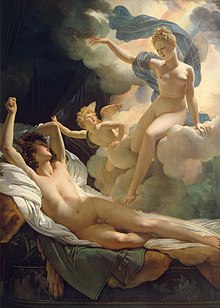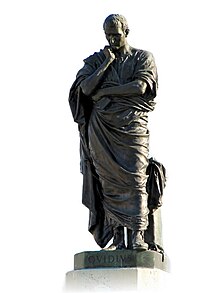The personification of the rainbow and messenger of the gods. She is also known as one of the goddesses of the sea and the sky. Iris links the gods to humanity. She travels with the speed of wind from one end of the world to the other, and into the depths of the sea and the underworld.
Iris is frequently mentioned as a divine messenger in the Iliad which is attributed to Homer, but does not appear in his Odyssey, where Hermes fills that role. Like Hermes, Iris carries a caduceus or winged staff. By command of Zeus, the king of the gods, she carries an ewer of water from the River Styx, with which she puts to sleep all who perjure themselves.
Writing system
2) hieroglyphic:The writing system is invented by Egyptians. It is an adjective formed from the Greek words for "sacred"and "carving."It combines logographic and alphabetic elements. Its most conspicuous and continuous use is for inscriptions carved on temple walls and public monuments.
3) Phoenician alphabet:The Phoenician alphabet consisted of twenty-two simple signs for consonantal sounds. Through trade, the Phoenician script spread all over the Mediterranean.
Three ancient cultures
- Hebrew Bible: It refers to the Jewish biblical canon. In its Latin form, Biblia Hebraica, it traditionally serves as a title for printed editions of the Masoretic Text. Many biblical studies scholars advocate use of the term "Hebrew Bible" (or "Hebrew Scriptures") as a neutral substitute to terms with religious connotations.
- Monotheism: It is defined by the Encyclopædia Britannica as belief in the existence of one god or in the oneness of God. The Oxford Dictionary of the Christian Church gives a more restricted definition: "belief in one personal and transcendent God", as opposed to polytheism and pantheism.
2) Greeks
- Hellenes: The origin of the people who eventually called themselves Hellenes.
- Peloponnesian war:name of the conflict between Athens and Sparta that broke out in 431 and continued, with an interruption, until 404. Athens was forced to dismantle its empire. The war however, was not decisive, because within a decade, the defeated city had regained its strength. The significance of the conflict is that the divided Greeks could not prevent the Persian Empire from recovering their Asian possessions. Besides, this violent quarter of a century had important social, economic, and cultural consequences.

3) Romans
- Carthage:a city in Tunisia that was once the center of the ancient Carthaginian civilization. The city developed from a Phoenician colony of the 1st millennium BC into the capital of an ancient empire. The city of Carthage is located on the eastern side of Lake Tunis across from the centre of Tunis. According to Greek historians, Carthage was founded by Canaanite-speaking Phoenician colonists from Tyre (in modern Lebanon) under the leadership of Queen Elissa or Dido. It became a large and rich city and thus a major power in the Mediterranean. The resulting rivalry with Syracuse, Numidia, and Rome was accompanied by several wars with respective invasions of each other's homeland.
| Dido Queen of Carthage |
- Virgil: an ancient Roman poet of the Augustan period. He is known for three major works of Latin literature, the Eclogues (or Bucolics), the Georgics, and the epic Aeneid. A number of minor poems, collected in the Appendix Vergiliana, are sometimes attributed to him.
- Ovid: a Roman poet who lived during the reign of Augustus. He was a contemporary of Virgil and Horace.










